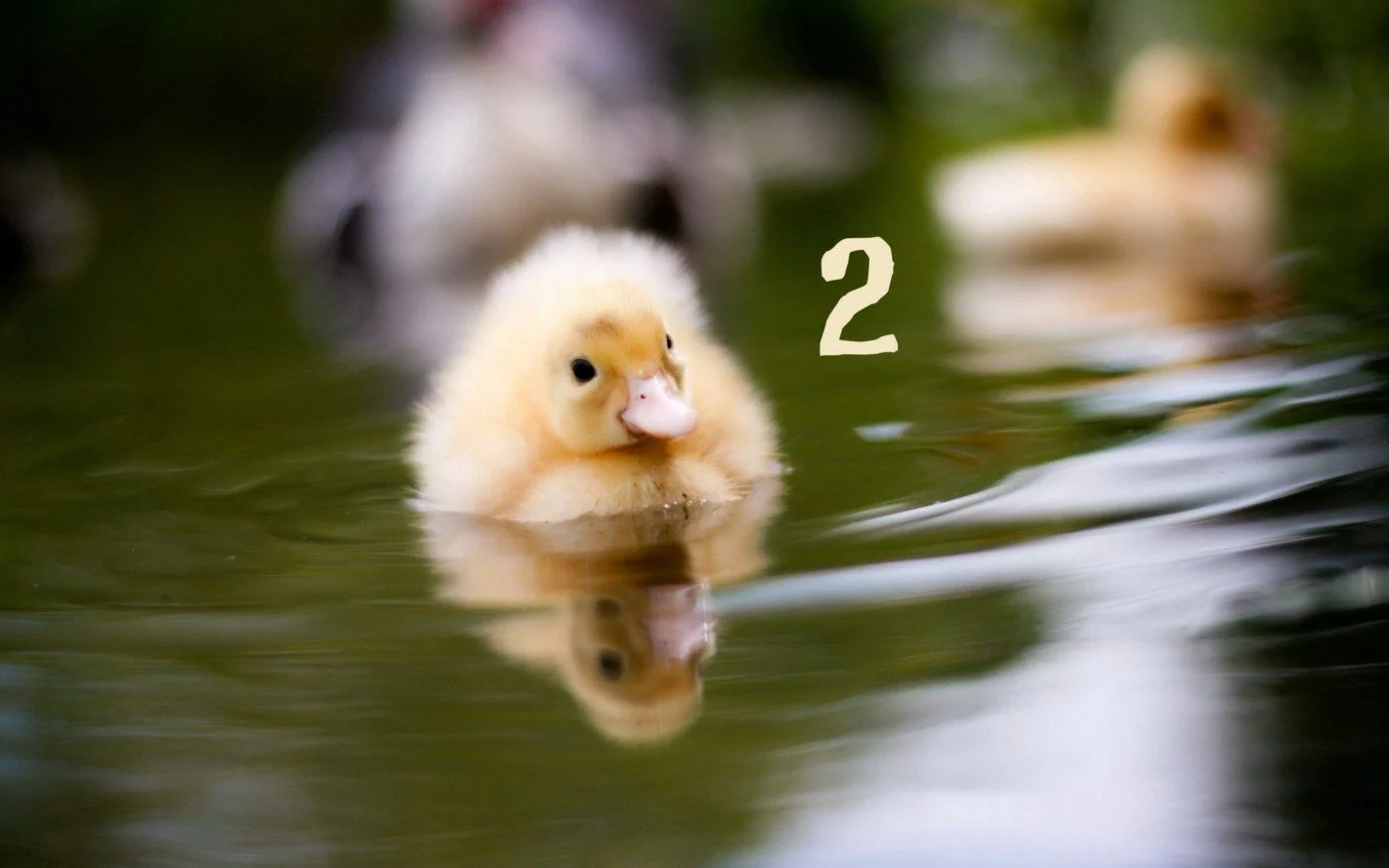The premise for this piece is that much of rapidly our "alternative subcultures" have slowly been morphing from an "ask cultures" to a "guess cultures"
What is an "ask culture"? It's a culture where asking questions where discovering a new way of being is more desirable than making assumptions about it. It also tends to be a newer culture (or subculture) where the inner workings of the culture and the "right" behavior are still getting figured out, allowing for a lot of leeway around how to interpret things and engage with people, requiring a high level of curiosity.
However, as an "ask culture" starts to settle, it slowly but surely becomes a "guess culture" where more and more assumptions are being made about the "right" way to engage, and as such people start to guess more and more how to do it.
(Click the title to read the rest)
Just as a safer sex conversation can a useful way to mitigate risks when it comes to intimate physical encounters with others, the RDBSM(ATDP) conversation can be a beautiful way to reduce the risk of emotional challenges with new intimate partners. Each letter represents a topic to discuss so that both partners have greater awareness about their partner as a complex human with complex circumstances.
This conversation can look like: each person going through all the topics at once or going through each topic together and each person speaking about it in turn:
When should you have a RDBSM(ATDP) conversation? I
In the context of bringing care and consideration for a new intimate partner, we recommend you have this conversation as soon as you realize that an engagement will move towards to a level of emotional or physical intimacy that is deeper than friendship. It’s okay to check in by saying “I’m sensing that this might go deeper than something platonic. Would you be open to take the time to have an RDBSM(ATDP) conversation so we can fully consider each other and engage in a way that feels good as we dive deeper into this engagement?”
(click the title to read more)
As you look back on an intimate experience with another person and integrate what you explored, discovered, and learned from these intimate moments, it might be a good time to consider checking in with them (if you haven't done so already)
In many circles, this is called aftercare: a way to check-in, reconnect, and offer support towards each other's integration and the feelings that might have come up. It is a form of longer and deeper attunement which includes not only the engagement itself, but also care and consideration for what happens next in someone's experience as they process what happened post engagement.
Along with aftercare, I also like to do an additional piece which I call a debrief. I learned this with a new lover: after any experience with someone, she would want to talk about it, not only to get a chance to relive the turn on of the experience and squeeze even more goodness and memories out of it, but also squeeze the goodness of the intimacy and learning that would come with it.
So what are debriefs?
(click the title to read more)
Along with the free love culture of the 60's and the new-age/neo-tantra culture that came afterward came the idea of "instant-intimacy"
The idea that we can quickly form intimate bonds with one another.
Eventually, apps like Tinder, Bumble, OK Cupid, and countless speed dating, tantra retreats, play parties, and other relational and group experiences came to answer the call of what humans appear to desire above all else: connection.
And it slowly started to make sense: faced with ease of living wherever we are called and an ever greater source of intimate partners via social media and apps like Feeld and Grindr as well as a multiplicity of relational non-monogamous models, the world began to explore what is possible like the proverbial kid in the candy store.
(click the title to read the rest)
We love when a leader shows superhuman abilities. It tells us that they have earned their place as a leader because they can indeed show up better than we can and better than we can.
But it always seems to turn out to be a lie.
Leaders may have great abilities (or just charisma) but it's always anyone's guess how far they have learned to master the power given to them by their role.
Abilities (and the right mentors) offer some capacity to use power well, but only experience can truly lead to mastery... if such experience doesn't lead to downfall first.
(click the title to read the rest)
"How have you abused your power?
How have you abused your power?
How have you abused your power?"
At first, in my mind's eye, I was speaking loudly to someone I had experienced as clearly abusing their power, and as I was doing so, I knew full well that I eventually would need to answer as if I was sitting in their shoes.
Except I didn't, not exactly.
I was doing an aspecting session, and in one such a session it is only with me, myself, and I—and any and all archetypes willing to show up. I speak as one, and then I move to the other side of the pillow and I answer as another.
(click the title to read more)
(I wrote this a few years ago after a mediation I went through with someone in another community)
Whenever we witness a conflict between two people, one of the most difficult things to do is to establish what is actually happening between them.
Mostly, it’s impossible.
You might be unlucky enough to speak to one person first and hear them speak of the other person in the most demonizing ways they can. And this will play into any biases you already have about any group they might appear to be a part of.
What happens when the person being demonized is a man? How easy is it to perceive them according to the new narratives emerging about them? About us?
I’ve spent 30 years digging deep into myself around this, from the time I was with my first and second girlfriend, both having been assaulted and abused by men. And during these years, I explored not only the ways there might be such a dangerous man inside of me, but also the ways he might be inside of other men.
30 years of exploring my own misandry.
(click the title to read more)
I've been considering the intersection of intentions/agreements/connections as a way to create a field that continues to hold people and their experience long after events, workshops, parties, retreats, trainings--in a particular light and trajectory, ideally in a way that is supportive, sovereign, loving, and growthful.
If these three "subfields" aren't strong enough together in concert/collaboration with each other, participants who don't feel validated and held in their experience in the current field might decide to move to another field (of intentions/agreements/connections) if this new field seems to be better able to hold their experiences and support them in making sense of them safely.
However, this can also cause people to reinterpret their experiences in a way that occurs as more harmful or look from that new field into the old field in a way that seems more harmful.
And fair enough, whichever field they land on will seem to be the one which is the best/safest/truest/most accurate.
(click the title to read the rest)
How do you make requests? How do you engage another person with your needs, desires, or ideas in a way that allows them to find their own way and avoid feeling undue pressure if they are more agreeable than you or if you have more power/rank than they have? How do you ensure that an engagement is fully consensual (ready, willing, able, informed) in the face of the nuances of how you relate with another person?
Here's a few examples. Take a moment to feel how each of these would occur on someone else or on you depending on who the other person is and who you are in relationship to them:
Click the title to read the rest.
Clearing conversations, AKA Repair Conversations (at least for smaller issues) or Mediated Conversations (for the bigger issues) are crucial to maintain relationships of all types and levels as they support arising issues, difficulties, and challenges people may have with each other by creating a space for feelings/emotions, projections, thoughts, feedback, stories, request, boundaries, etc to be expressed cleanly by the giver with the greatest chance of being heard by the receiver.
Over time, without these types of conversations (or the ability for either or both people to integrate them into something real rather than imagined, relationship will slowly (or quickly) deteriorate. One only has to look at their closest relationships to understand how easily it is to make things up about someone else, their needs, their desires, their personality, their fears, their qualities and faults, etc to see the natural propensity for humans to fill in the blanks of their knowing and understanding about someone else and begin to believe their own thoughts more strongly than leaving an open empty question about this person.
(click the title to read the rest)
believe, and are now looking for ways to test their new toy.
So what do you do about this?
Don't walk into the trap. It's only for you if you get caught.
Add "It is my personal opinion that..." in front of their meme to understand that it's not objective truth.
Also many memes assume something to be true just because it's in the meme, so if you show up and speak otherwise, you just became the target audience for the "denier" of the meme, which will then expose you to a similar trap.
Take a look at the second meme, which, when spelled out, looks like this:
"If you need an illustration of white privilege (ie you're one of those people who need it), and don't think you have privilege, then you needing this illustration is your white privilege talking (and it might also show your fragility for good measure)."
(click the title to read the rest)
(Note: In this conversation I will use responsibility to also mean accountability)
For this game we take a whole new look at the conversation around the topic of Responsibility and its role in conflict. Clear your mind of what you know and dive in.
In relationship or any engagement between adults, responsibility is usually something that is shared (to some degree) between all parties involved.
Imagine responsibility as something that can be measured in terms of “quantity”. When responsibility is taken for everything that happens in the engagement/relationship, everyone knows the part they play and to what degree they affect the outcome. Generally, this means everyone is happy in the engagement and there's little conflict: I cook, you do the dishes. You want more touch, you tell me and I respond with more touch. I drive and you navigate. If I'm unhappy, I share with you about it and you know where you can rise up because it's your responsibility. Or you can refuse and I can take responsibility.
(click the title to read the rest)
Classic right?
They are pulling away all the time.
They shut down when you try to bring up a relationship concern.
They don’t respond to their messages in a timely manner.
They don’t meet your needs.
They don’t give you enough reassurance.
They don’t tell you they love you enough.
(click the title to read the rest)
Recently, I had a conversation with a group of friends about the idea that in interactions and specifically requests made by one person towards another, there were various categories of "pressure" felt by the person receiving the request, and influenced at various degrees by the person making the request.
This pressure, mainly, serves to overcome, achieve, or reach consent, meaning it influences someone’s level of readiness, willingness, ability, or information about the nature of the engagement towards the possibility of them consenting to the engagement.
Achieving consent isn't necessarily *bad*: it can look like encouraging/supporting someone who isn't yet a "yes" by giving them what they might need to get there, as a team effort with them in that decision process. And, it can also be one-sided (for the asker who is only focused on/caring for themselves or on the other, or for the person being asked especially if the asker is coming from a place of people pleasing.
(Click the title to read the rest)
Note: I use the word “narcissist” as an illustration only, not as a definition for someone. This post is more related to avoidant attachment style)
Someone comes into my field, we connect, and I feel immense love for them. I express this love with an open heart… We share a period of deep Communion, sometimes nearly soul shattering!
As the days go on… I find it more and more difficult to continue giving love and affection at this level… It isn’t sustainable. I am just one person, and their need begins to feel like a deep well.
I have always refilled my own cup by spending time alone…withdrawing from the world. Giving myself the love and attention I need.
Click the title to read more.
I think the quote below is great.
And, it fails to acknowledge the deep need many people have to be chosen, to be someone else's top choice.
Some say "I choose myself first" and fair enough, they do, and everyone else comes second.
Some choose (or nature does) their child(ren).
Some choose their pet.
Some choose their partner.
Some choose each moment, each engagement, each bite of food they ingest.
We forget the power of choosing and being chosen.
(click the title to read more)
In Love Letter #1, we looked at how the anxious attachers’ loss-prevention strategies are often the very things that *cause* the loss they’re so afraid of. We looked at it under an electron microscope, so you could see every psychological mechanism (and its impact on others) with excruciating clarity.
In Love Letter #2, we looked at how to do things differently, taking a sober look at how to manage the inevitable intoxication of the falling-in-love drugs, so that you can build a real foundation for your relationship that could last your whole life long.
And in Love Letter #3, we’re going to be looking through the electron microscope once again at just one small piece of the anxious attachment puzzle: our relationship to our own desires and needs.
Let’s jump in…
When we’re really young, we have SO many needs — my god, so many needs. In a “good enough” environment, those needs are mostly met, most of the time, and it’s fine. We don’t need perfection in order to be okay — great, even. But for most of us, there was one thing or another that we really needed, that our environment couldn’t consistently provide (eg. unconditional love, safety, attunement, encouragement, etc.), or there was some part of the environment that was fundamentally broken (eg. family, home, money, sexuality, etc.).
(click the title to read the rest)
Sobriety in the Spike & The Two Transformations
The central point of the first “Love Letter to the Anxiously Attached” was this: anxious attachers are wired up to have stronger feelings (sooner) and to bond deeper (faster) in the beginning of a new relationship. They also tend to rush into lots and lots of intimacy, which means that the need for consistency and security is probably going to come online sooner for them than it will for their lover — which is likely going to be more than that person (or the relationship) are ready for.
A lot of these responses are baked into the nervous system, so it really isn’t a matter of stopping it from happening. Rather, it’s about learning to maintain a degree of mindfulness while it is happening — just enough so that you can make different kinds of choices. I call it “Sobriety in the Spike.”
The “Spike” is that initial stage of relationship where you can’t stop thinking about them, where you’re willing the time to pass until you can see them again, where being with them is the most intoxicatingly pleasurable thing you can possibly imagine. It’s a surge of hormones and neurotransmitters that are doing precisely what they were evolutionarily designed to do. Thing is, the Spike isn’t “like” drugs, it IS drugs, and there are some highly predictable ways that they will distort your perception of reality and compel you do all kinds of things you wouldn’t ordinarily do.
(click the title to read more)
In consent work, it's common to say that consent means someone is ready, willing, able, and informed.
However, what if the only thing missing is someone being *willing*? What if they are ready, able, and informed, but something is still stopping them.
What has someone be willing (or not) to engage in a particular way?
I believe this is where we enter the realm of "free-will" (and of course, the phrase gives it away)
At first glance, you would expect everyone to have free-will and be able to make their own choices--choices which, ostensibly, would feel good and have a positive impact on their life.
But if you look deeper, you'll immediately see that this isn't always the case: people only make choices that are GOOD for them (ie have an effectively positive impact on their life) and perhaps ALSO feel good--or make some level of PAIN and SUFFERING go away.
And so if they lack enough perspective or feelings to make a better choice, they won't.
Why is that? I have a few thoughts...
(click the title to read more)
For this exploration and inquiry we dive into the realm of (personal) responsibility. What does it take to take responsibility for all things that happen to us? Is it even possible? Does it even make sense? And when we fail, can we take responsibility for *that* too? In transformational circles, many people believe that taking 100% responsibility is not only possible but also *desired*. But what happens when something happens and we just can't take personal responsibility, no matter how much we try? Conflict is often the result. Read on below for the various scenarios possible between two people when impactful words or actions are shared, and then find someone to explore these scenarios with in conversation.
Click the title to read the rest.




















